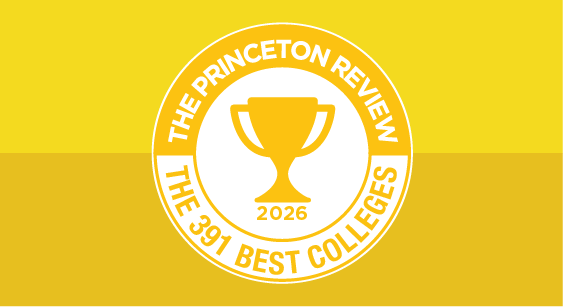
Test-optional colleges have been around since at least Bowdoin College in 1969, but it wasn’t until the COVID-19 lockdowns of 2020 that many schools started to adopt such policies. Some admissions offices are beginning to rethink or reinstitute those policies.
No Longer Test-Optional Colleges (2023)
- MIT
- Georgetown
- United States Military Academy
- State university systems in Florida and Georgia
No Longer Test-Optional Colleges (2024)
New Research on Test Scores
Others are likely to follow in the footsteps of academic research from Opportunity Insights, which suggested (at least so far as Ivy Plus colleges) that test scores more accurately predicted collegiate success than other factors like GPA.
Of the schools featured in the 2024 Edition of Best 389 Colleges , 80% were still test optional. Others, like Yale, have instituted other policies, like being test flexible. In this case, if you choose not to submit a test score, you’ll need to submit every IB or AP score you have.
Changing Policies
In short, keep an eye out for changing policies. You’ll also want to make the most of information schools use to indicate whether your SAT and ACT scores may help, even if the school is test optional.
For instance, Indiana University provides students with the average SAT scores, ACT scores, and high school GPA for admitted students. By contrast, Stanford University proclaims “Standardized testing is one of the application requirements that can highlight academic preparedness,” just before revealing they are, in fact, test optional: a high SAT or ACT score will help here, too.
An application reader at any selective college is looking for the best essays, the best recommendations, and the best high school transcripts in their batch of applications. That search for the best applies also applies to test scores. Any school prefers a 1400 to a 1200 on the SAT, or a 31 to a 25 on the ACT, no matter what weight they give standardized test scores.
Competitive Test Scores
Given that it can help to submit scores at every school that isn’t test free, it’s a good idea to start prepping for the SAT or ACT.
- Set a target test score by looking up your desired school’s median test scores.
- Take a free practice test to see how close you are to that target.
- Start scheduling test-prep to raise your grades to your goal.
Have a Well-Rounded Application
Given that some of the schools you apply to might not look at your test scores, or you might not yet be at your target score, make sure you also focus on the other parts of the application:
- craft compelling essays
- put together your activity list
- procure letters of recommendation from teachers.
Put It All Together
You’ll need to have your score in hand to know what you’ll do with it when you’re submitting applications. That makes the spring and summer of your junior year the ideal time to prep. You can dedicate your time to making sure you’re ready for the SAT or ACT. This way, whether you’re applying to test-optional colleges or not, you’ll be ready.
Explore Colleges For You
Connect with our featured colleges to find schools that both match your interests and are looking for students like you.
Get Started on Athletic Scholarships & Recruiting!
Join athletes who were discovered, recruited & often received scholarships after connecting with NCSA's 42,000 strong network of coaches.
Best 391 Colleges
170,000 students rate everything from their professors to their campus social scene.



